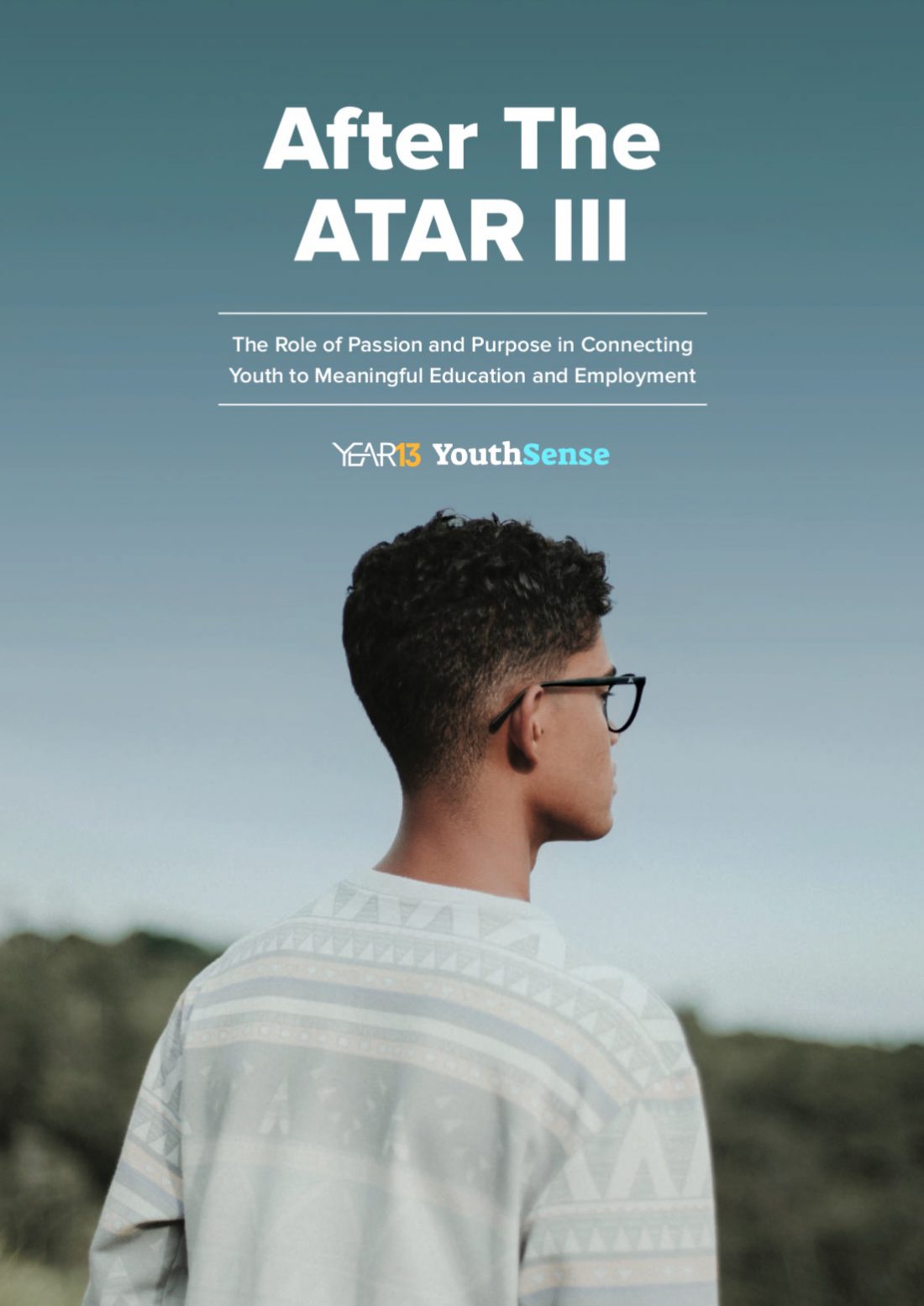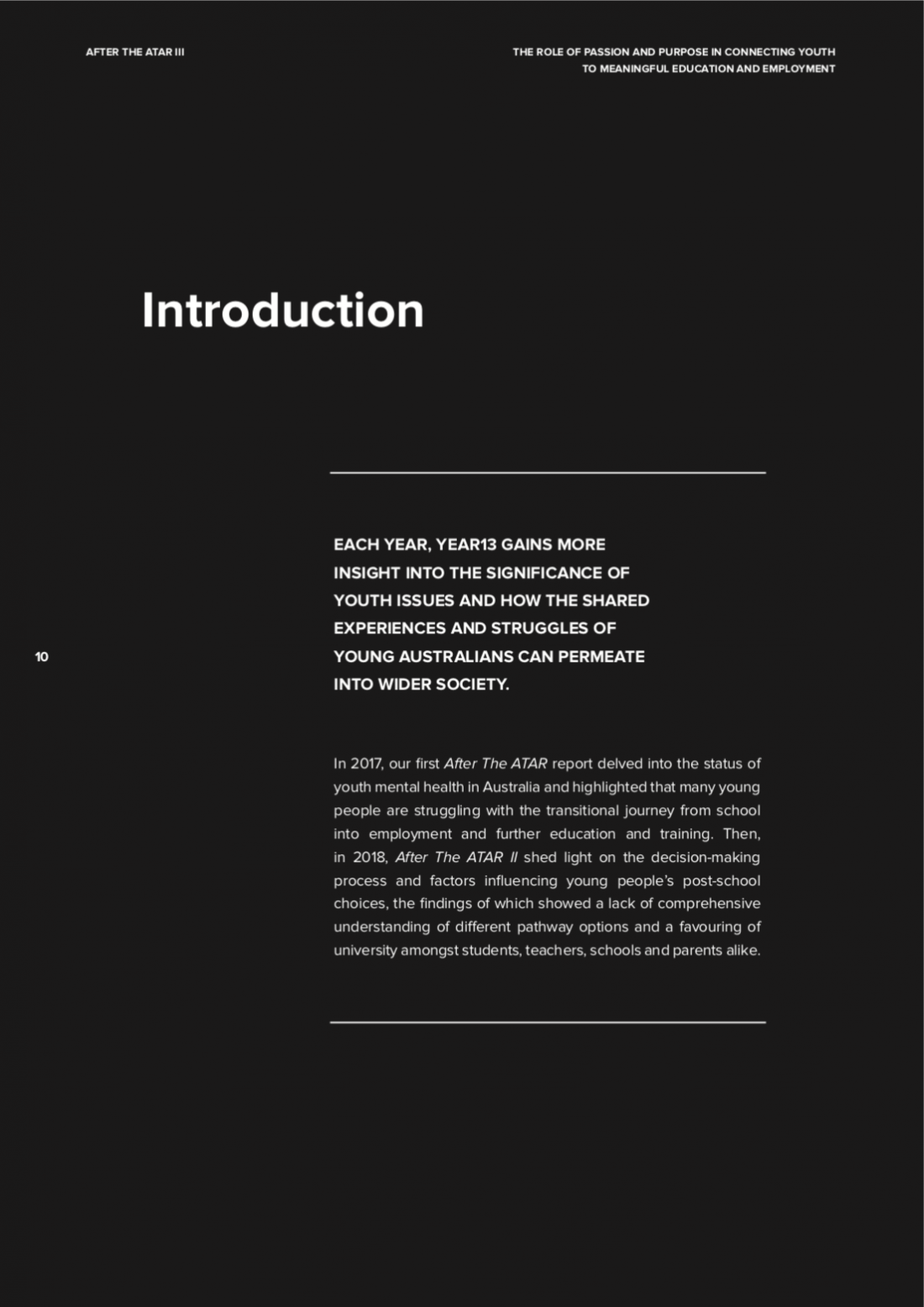Our society is quite literally built on passion.
The masterpieces, the classics, the trophies, the structures, the inventions, the world records, the breakthroughs – passion gives them all to us. But despite the results of it being all around us, the idea of passion can still seem airy and intangible. For all the talk of how important it is to have passion, is it something that can actually be measured in hard, real-world terms?
Many of us don’t ever stop and think about all the different facets of our own lives passion affects often long before success is found. But it’s a question worth asking. So how does passion affect us in those critical formative years and how does this then impact on our lives as adults?

At Year13 we’ve asked these questions. We surveyed thousands of young Australians aged 15 to 24 about their passions and as a result we’ve got the numbers to prove just how important it is to help young people find their passions.
And what we’ve found is that, yes, the results of passion are measurable.
In our After The ATAR III report our data paints a picture of the life of a teenager with, or without, passions. Critically, the numbers show how much young people’s lives are improved when they have a passion to pursue. Here you can see from our research what areas young people’s passions mainly fall into.
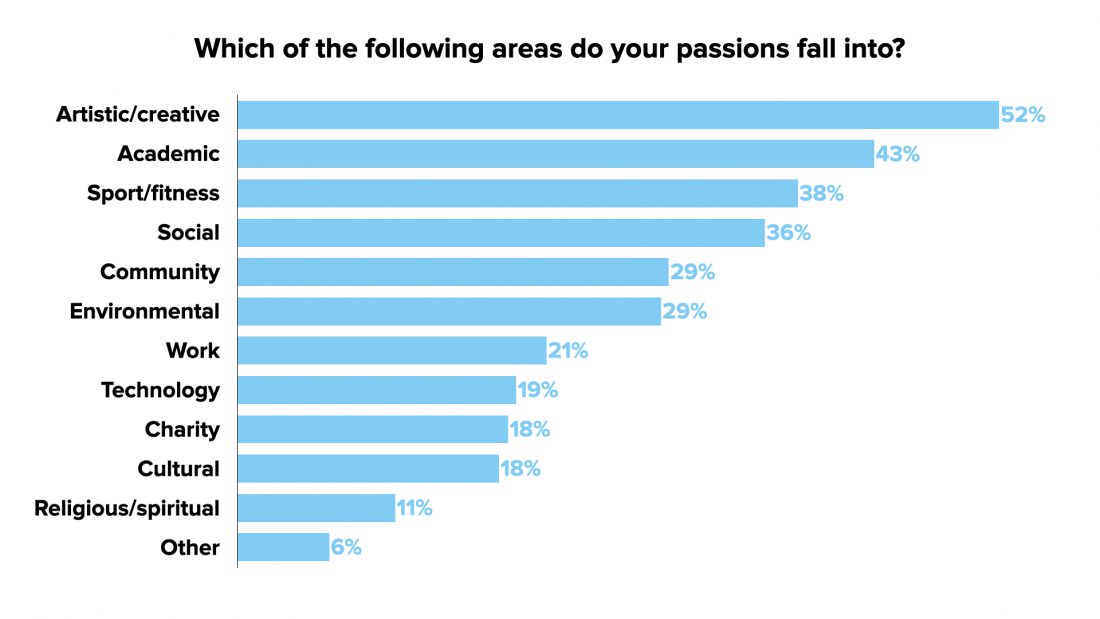
We’ve found young people who are pursuing a passion are better prepared for and have a more positive outlook on their futures than those who don’t. The benefits of this are manifold and magnified over a lifetime as they more confidently springboard from high school into their careers, creating a sense of purpose and direction in their lives which reduces the likelihood of mental health and unemployment problems.
Below is an overview of what we’ve discovered for young people who are pursuing a passion as opposed to those who don’t have a passion and are still in search of one.
-
They are more likely to have plans for reaching their goals
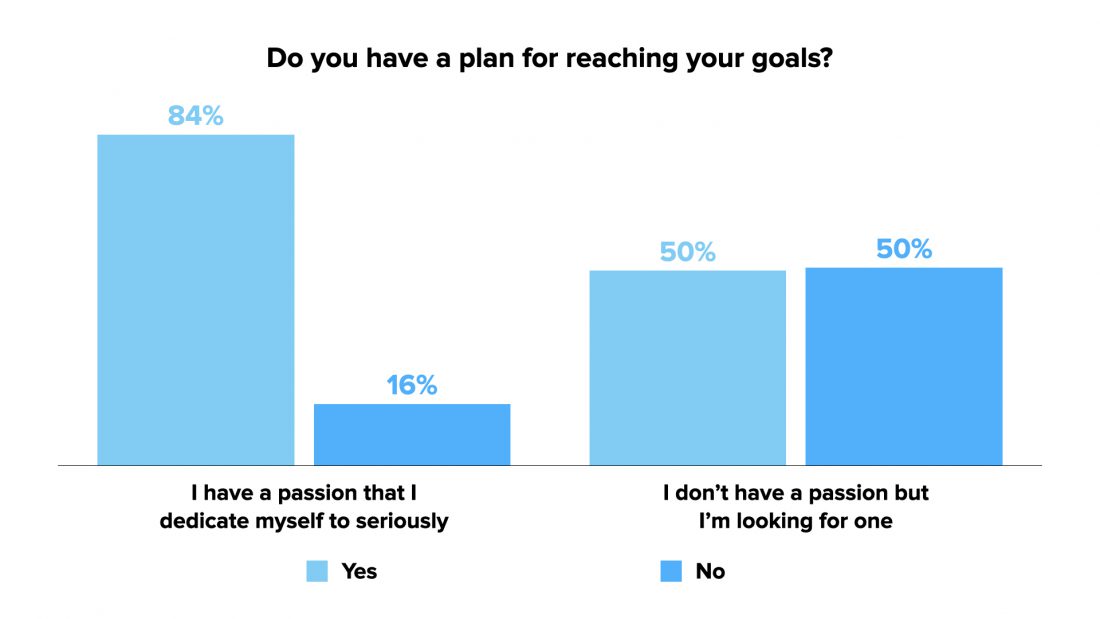
-
They are more likely to go to school because they want to rather than because they have to
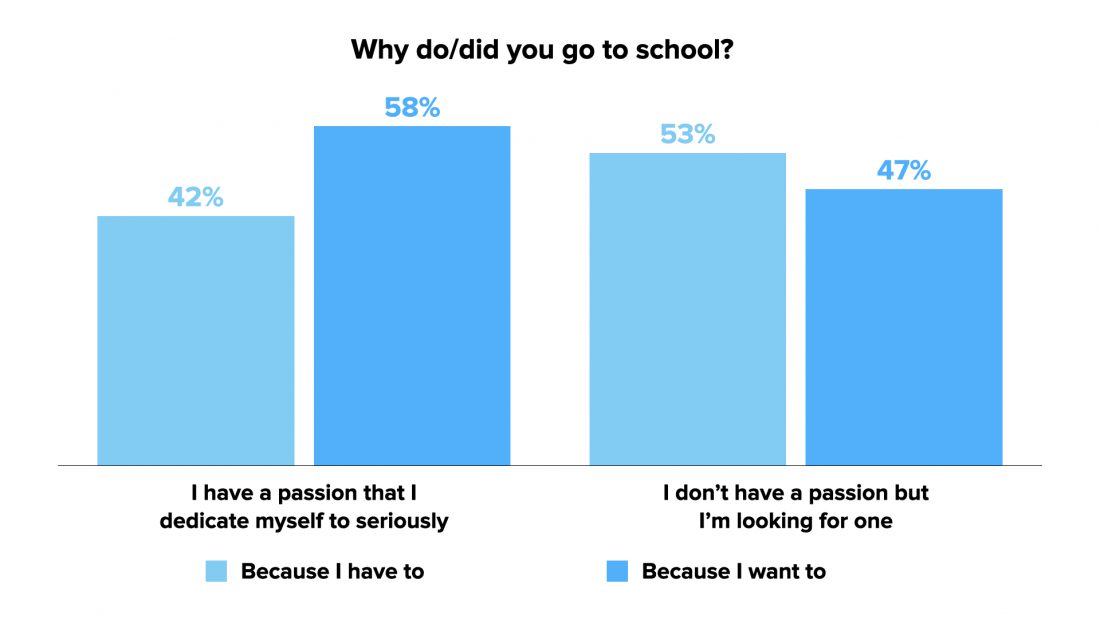
-
They are more likely to feel in control of their destiny
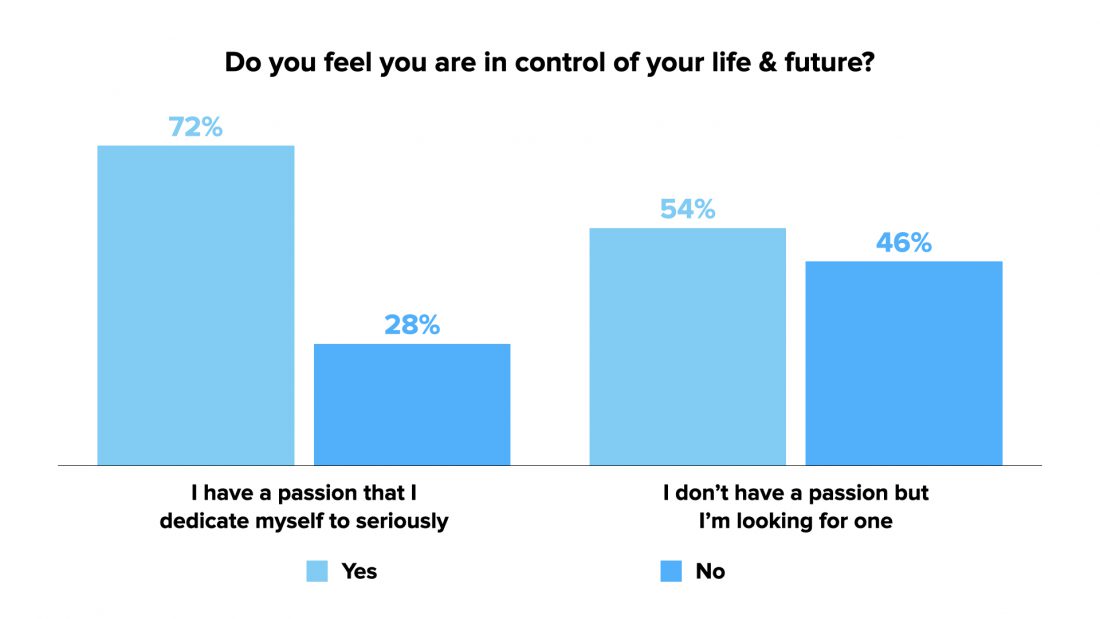
-
They are more likely to be positive about their future career prospects
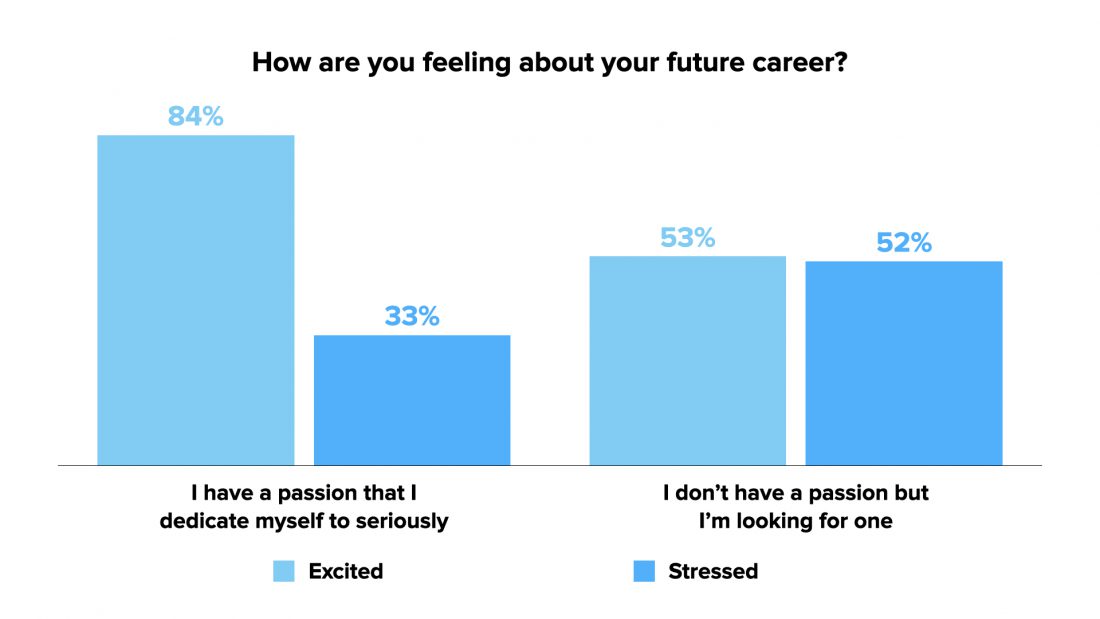
-
They are more likely to change the world
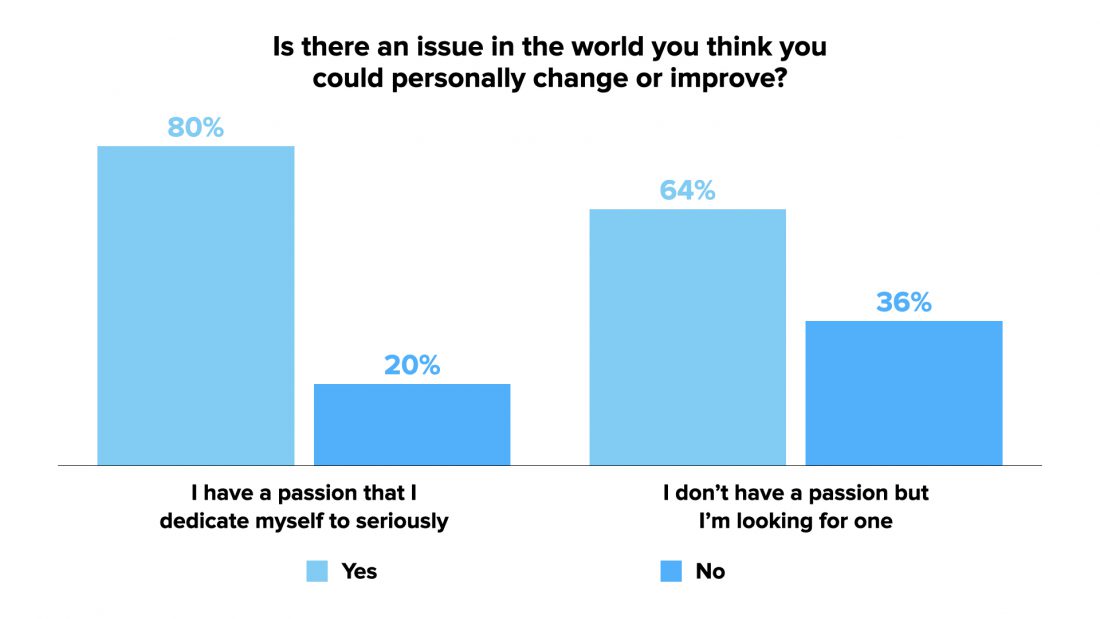
Grab your free copy of our After The ATAR III report for more data and unique insights about Gen Z.
